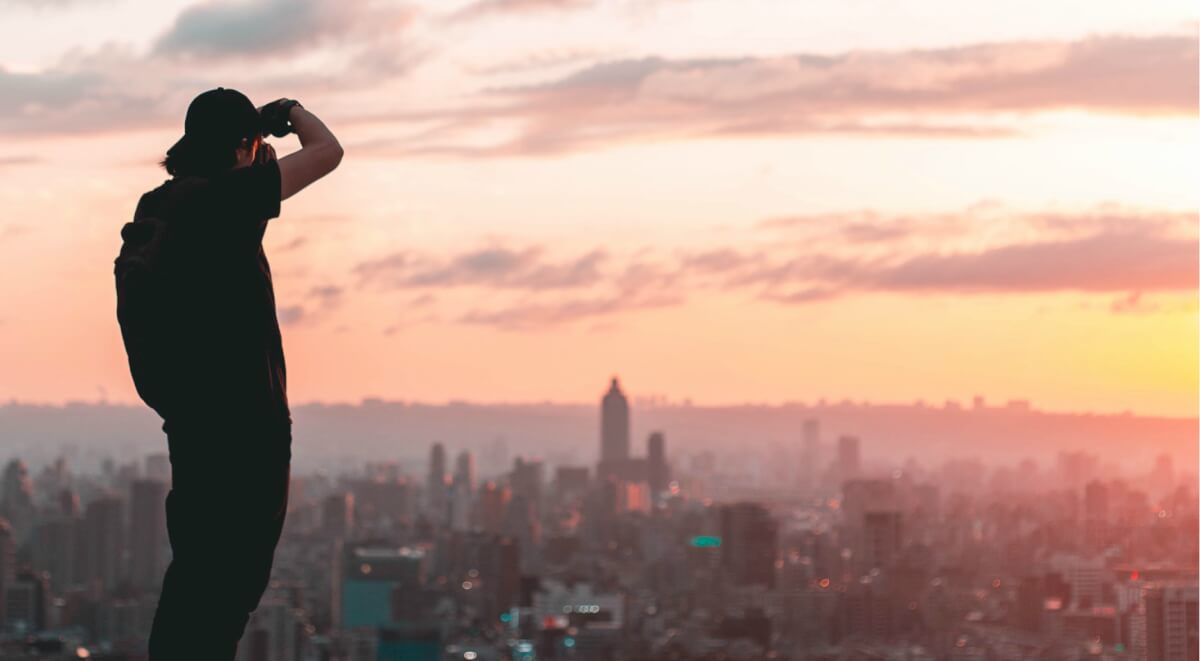Cash or card in China: Which is the best way to pay?
Should you pay with cash or card in China? A handy guide including alternative payment methods, cash etiquette, Chinese ATMs and using your UK card.

If you’re planning a trip abroad you should do some research to stay safe and healthy on your journey. With plenty to do and see, China is a very popular destination for long-term or short-term visitors, but you may need to get vaccinated ahead of time to protect you from some diseases, especially if you’ve never traveled to the country or continent before. This guide can help you understand what you need to know about vaccines before you take your trip.
The difference between immunisations, shots and vaccinations can be confusing. These three things are different, but they're all part of the same process. Let’s start with a shot. You’ll probably be familiar with getting a shot at the doctor’s office. A common example is the annual flu shot. The substance that's in the shot is a vaccine. The vaccine enters your body and gives you immunity from that particular disease or illness. A typical vaccine usually contains an agent that resembles the disease, so it might make you feel sick for a short period. This is a sign that your body is recognising the disease and building up your immune system to fight it. This overall process is immunisation, and it's the safest and most effective way to stop the spread of infectious diseases.
Getting a vaccine is the most effective way to prevent spreading or catching an infectious disease. When you're travelling your body will be exposed to new elements, including foods, plants, animals, and people. These biological agents could be carriers for bacteria, germs, and strains of diseases that can make you sick if your immune system isn't already resilient.
Vaccines have actually eradicated several diseases in recent history. For example, in the late 1800s, smallpox was responsible for up to 20% of deaths in Europe, but because of an effective vaccine and a worldwide immunisation campaign, the World Health Organisation officially declared that smallpox was eradicated in 1980. This is why most countries recommend or in some cases, they mandate, that visitors or citizens get vaccinated to certain infectious diseases.
The avian influenza A(H7N9) virus, also commonly known as the “bird flu” was first reported to have infected humans in China in 2013. The World Health Organization has reported several cases of the infection as recently as autumn of 2017. In total there have been more than 1500 cases of bird flu in China since 2013.
In order to avoid contracting bird flu, travellers visiting China should avoid contact with live animals and poultry in particular. You should also wash your hands regularly with soap and water and follow good food safety and hygiene habits.
Allowing yourself 4-6 weeks before travelling to get the proper vaccines is good practice. You should check with your doctor to ensure all of your routine vaccinations are up to date, and use the guide below to see if you need any other specific vaccines before travelling to China.
If you’re American, British, or Australian, you aren’t usually required to get vaccinations unless you have specific health problems or are traveling under specific circumstances or for long periods of time. For example, British nationals entering China for more than 6 months will need a health certificate legalised by the Chinese Embassy that includes a blood test for HIV.
All nationalities should plan to be up-to-date on routine vaccinations that you get in your home country, like measles-mumps-rubella (MMR) and diphtheria-tetanus-polio (DTap). Here is a run-down of some of the commonly-recommended vaccinations for China:
| Disease/vaccine | Vaccine required? | Recommended For... | Reason |
|---|---|---|---|
| Measles - mumps - rubella (MMR) | No | All travellers | Routine vaccination - needed before travelling to any country. |
| Diphtheria - tetanus - pertussis vaccine | No | All travellers | Routine vaccination - needed before travelling to any country. |
| Varicella (chickenpox) vaccine | No | All travellers | Routine vaccination - needed before travelling to any country. |
| Flu shot | No | All travellers | Routine annual vaccination - needed before travelling to any country |
| Hepatitis A | No | Most travellers | Hepatitis A can be contracted through contaminated food or water in many different countries. |
| Typhoid | No | Most travellers, especially those staying with family in rural areas | Typhoid can be contracted through contaminated food or water in many different countries. |
| Malaria | No | Some travellers | There isn’t a vaccine for malaria, but all travellers should know the risks of contracting malaria and avoid mosquito bites. |
| Yellow Fever | Yes, for travellers from or who have recently passed through these countries | Required for all travellers coming from high risk countries | There’s no risk of yellow fever in China but the government of China requires it for travellers coming from countries with a high risk of yellow fever. |
| Rabies | No | Travellers involved in outdoor and other activities or those working closely with animals | Rabies can be found in several mammals in China. |
| Japanese Encephalitis | No | Travellers visiting for an extended period of time and staying in rural areas | Japanese encephalitis is a virus that's commonly spread through mosquito bites. |
| Hepatitis B | No | Travellers who might have sex with a new partner, have a procedure involving needles | You can get hepatitis B through sexual contact, contaminated needles, and blood products. |
| Polio vaccine | No | Travellers who are visiting the Xinjiang province and working in a healthcare facility, refugee camp or humanitarian aid setting. | You can contract polio by coming in contact with other people who have it. If you had the vaccine as a child you can get a booster as an adult. |
Mosquitos that carry diseases like malaria thrive in warm weather and rain. China is a big country and the weather and climate varies depending on where you’re headed. In the popular regions of the north and east, which include cities like Beijing and Shanghai, the summer months of July and August tend to be the hottest and wettest. However, influenza (flu) viruses tend to thrive in cold weather when people’s immune systems are weaker. In the north and east regions in China, winter months would be December - February.
The emergency number in China is 119. You can get an ambulance by dialing 120. For more information about healthcare or emergency information you can visit:
China is a vast and beautiful country with so much to experience. You can visit the bustling cities or get a glimpse of majestic history on the Great Wall. If you’re planning a trip to this unique country you should prepare yourself by getting the correct vaccines ahead of time. This way you can stay safe and healthy and focus on enjoying your trip.
*Please see terms of use and product availability for your region or visit Wise fees and pricing for the most up to date pricing and fee information.
This publication is provided for general information purposes and does not constitute legal, tax or other professional advice from Wise Payments Limited or its subsidiaries and its affiliates, and it is not intended as a substitute for obtaining advice from a financial advisor or any other professional.
We make no representations, warranties or guarantees, whether expressed or implied, that the content in the publication is accurate, complete or up to date.

Should you pay with cash or card in China? A handy guide including alternative payment methods, cash etiquette, Chinese ATMs and using your UK card.

A complete guide to buying antiques in China, including tips for UK buyers on the best antique markets in China.

A guide to the annual Qixi Festival, a traditional Chinese festival celebrated in China, Taiwan, Singapore and other parts of Asia.

China isn't just a country, it's a fascinating mix of centuries-old traditions and cutting-edge technology, a blend that makes every moment here a discovery....

If you’re visiting China, you’ll want to stay informed of the financial basics. This guide will cover the Chinese currency, where to find money, and the...